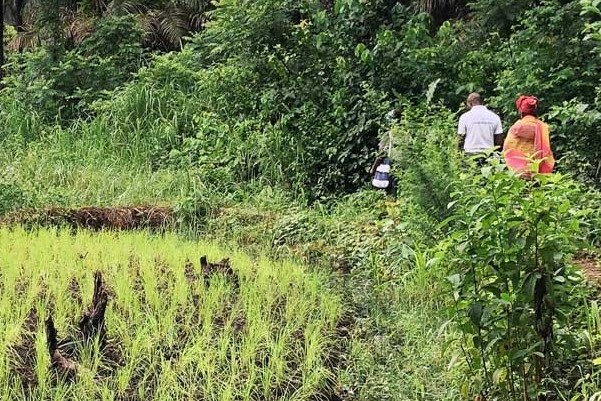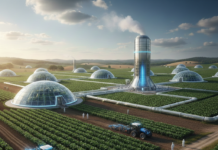The International Fund for Agricultural Development (IFAD) today announced support for a new project in Guinea-Bissau to reduce poverty, increase productivity and incomes, improve food and nutrition security and build the resilience of at least 287,000 small-scale farmers in the face of climate change.
Guinea-Bissau is one of the world’s least developed countries. Its poverty rate is very high, particularly in rural areas where up to 80 per cent of people live in extreme poverty, mostly working in agriculture. They are at particular risk as rising temperatures and sea levels and climate disturbances are affecting agricultural production.
To help the country to address these issues, the financing agreement for the Agricultural Diversification, Integrated Markets, Nutrition and Climate Resilience Project (REDE) was signed by correspondence by Gilbert F. Houngbo, President of IFAD, and Geraldo João Martins, Minister of Finance of the Republic of Guinea-Bissau.
This US$65.7 million project will promote crop diversification to reduce the country’s dependence on a single crop production – rice or cashew. As the project areas have an arid Sahelian climate, climate change mitigation and adaption measures will be introduced, particularly by reducing brush fires and forest clearing, better lowland water management, by increasing organic content of cultivated soils and protecting and generating forests on plateau land.
“IFAD is committed to work with the Government of Guinea-Bissau for inclusive rural transformation of the country where the persons with disabilities and returned migrants are not problems for their communities but are part of the solution,” said Gianluca Capaldo, IFAD Country Director for Guinea-Bissau. “REDE will work to ensure that no one is left behind”.
The project will promote the economic inclusion of small-scale farmers in adding value to agricultural production through processing. Rural infrastructure will be put in place to support market-oriented production, and to enable efficient delivery of surplus production from small farms to markets, allowing farmers to sell more in national and sub-regional markets and improve their livelihoods.
REDE will build the capacity of small-scale farmers – not only in production, but also in storing and processing perishable products. It will promote literacy activities for women and vocational training for young people.
The project funding includes an $11.8 million loan and $4.3 million grant from IFAD through its Special Programme for Countries with Fragile Situations. In addition, the Government of Guinea-Bissau is providing $7.6 million, with a further $4.9 million contributed by beneficiaries themselves and significant cofinancing from other development partners.
REDE will be implemented in four regions – Bafatà, Cacheu, Gabú and Oio and will develop 14,000 ha of watersheds and 3,500 ha of lowland for cultivation. In addition, 175 kilometres of roads, 3 existing semi-wholesale markets, 5 weekly markets and 2 collection centres will be rehabilitated. It will target women and young people, including persons with disabilities, and migrants who have returned to the country.
Since 1983, IFAD has invested more than $45.3 million in five rural development programmes and projects in Guinea-Bissau worth a total of almost $115.4 million. These interventions have directly benefited almost 182,000 rural families.








